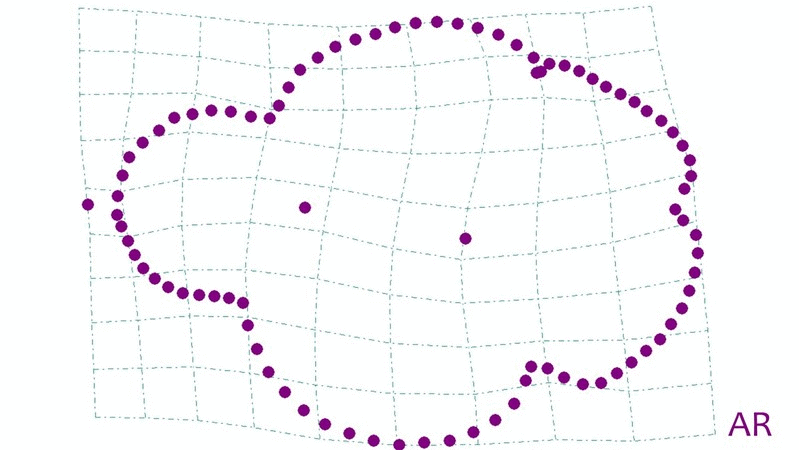
Tiffany A. Armstrong
Quantitative Fisheries Research Scientist
Works in Progress
Manuscript Writing
Washington State | '20 Manuscript Writing in the Time of Covid
Currently, I am writing up edits to the chapters of my thesis that will be submitted for publication. Currently under pre-review with my collaborators are a chapter examining the morphological effects of shortened maternal care duration on juvenile offspring in a mouth brooding cichlid, and the behavioural effects of isolation from parents in shell-dwelling cichlids. I am currently revising an additional manuscript from my thesis that investigates how a reduction in maternal mouthbrooding effects behaviour in offspring into adulthood. I am also working on revising a manuscript that looks at how rearing density effects shoal size preference and sociability in zebrafish.
PhD Research
PhD Chapter | '19 Duration of maternal care alters craniofacial shape in African cichlids
Using four species of maternally mouthbrooding African cichlids with lower jaws ranging from short to long we examined craniofacial shape changes in offspring with either reduced or full duration maternal care. As these craniofacial shapes are related to feeding functions, changes resulting from maternal care duration may have ecological implications.

Images of heads of juvenile African cichlids with either reduced (left) duration maternal care or full (right) duration maternal care. Fish are stained for bone (red) and cartilage (blue) visualisation and imaged before landmarking. Photo credit: T. Armstrong.
PhD Chapter | '18 Effect of maternal care on brain shape
The length and quality of maternal care in mammals is known to alter brain development. African cichlids provide extended and intensive maternal care. Does this form of care influence the development of the brain in terms of shape or volume? We're using geometric morphometric methods to determine differences between the brains and behaviours of fish with full term (MR) or reduced term maternal care (AR).


Top: The gif above shows how the brain shape (viewed dorsally) changes under different durations of maternal care. Each of the dots indicates a fixed or sliding landmark. Bottom Left: dorsal view of the brain of Dimidiochromis compressiceps (Malawi eye biter) indicating the locations of the landmarks both fixed (dots) and sliding (lines). Photo credit: T. Armstrong.
Collaborations
Glasgow | '19 Relationship of brain variation in different populations of Scottish trout
Libor Zavorka and Peter Koene, of the University of Glasgow, and myself are investigating differences in brain shapes among populations of brown trout from Scottish Lochs and rivers. My previous experience with brain dissections and analysis allowed for me to be an integral part of this team of behavioural researchers. We expect that populations inhabiting different environments may have corresponding differences in brain sizes.

Dorsal view of a trout brain from Loch Sloy, with olfactory bulbs (top of photo) intact. Brains imaged with a Honor Lite cell phone. Photo credit: T. Armstrong
Glasgow | '18 Effect of Long Term Temperature Increase on Cognition
Working with Libor Zavorka and Barbara Koeck, of the University of Glasgow, we investigate how temperature increases associated with climate change may influence cognitive function in European minnows and how the long term increases in temperature, within the range we expect to see as the climate warms, may alter brain shape. My previous experience with brain dissections and analysis allowed for me to be an integral part of this team of behavioural researchers.

Dorsal view of a European minnow brain, with olfactory bulbs (left of photo) intact. Brains imaged with a macro lens on a Canon EOS 1300D DSLR. Photo credit: T. Armstrong
Glasgow | '18 Effect of Temperature on Learning
Working with Alexis Khursigara, of the University of Texas Marine Science Institute, we investigate how temperature increases associated with climate change may influence learning and cognitive function in European minnows. As minnows are very social, Alexis designed a very simple two door choice system with the reward of a buddy fish. A stimulus fish was placed in the center compartment in a clear cylinder, only one of the chambers on each of the sides had access to the center chamber. The fish had to choose which one by exploring the whole tank. We investigate the temperature effect by acclimating fish to 18 C, or 14 C, with one of the groups being exposed to 18 C and then switching back to 14 C. We hope to learn how this change in temperature may influence cognitive function and metabolic rates and any relationships between the two.


Left: maze with choice experiment used to test cognitive function of European minnows under different temperatures. Right: set up of respirometers used to determine oxygen consumption of European minnows under different temperatures. Photo credit: T. Armstrong.
Texas | '16 Oil exposure alters social group cohesion in fish
In collaboration with researchers at the University of Texas Marine Science Institute, we investigated how oil exposure from spill events would alter complicated social behaviours in a popular sport fish. The Atlantic croaker is a gregarious estuarine species, local to the Gulf of Mexico. Exposure to oil, of even a single fish within a shoal, alters cohesion and swimming speed of the group. Manuscript submitted to Scientific Reports, January 2019.

Micropogonias undulatus (Atlantic croaker) tagged with coloured beads to allow for individual identification and tracking of social behaviours. Photo credit: T. Armstrong.
Previous Research
MRes | '14 Handle with care: Maternal care imparts boldness in African cichlids
Mouthbrooding is often described as a key evolutionary trait allowing for the radiation of African cichlids. Here we investigate if the length of brood care influences a behavioural syndrome in juvenile cichlids. Individuals which received full term maternal care were more bold than those with stunted maternal care length.

Eighteen day old offspring of Dimidiochromis compressiceps (Malawi eye biter), a mouth brooding African cichlid. Photo credit: T. Armstrong